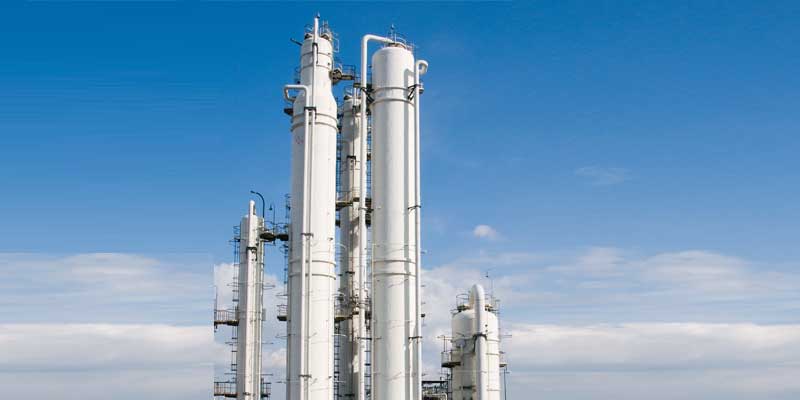Schedule a Call Back
Yokogawa and JSR use AI to control chemical plant autonomously
 Industry News
Industry News- May 13,22

Yokogawa Electric Corporation and JSR Corporation announce the successful conclusion of a field test in which AI was used to autonomously run a chemical plant for 35 days, a world first. This test confirmed that reinforcement learning AI can be safely applied in an actual plant, and demonstrated that this technology can control operations that have been beyond the capabilities of existing control methods and have up to now necessitated the manual operation of control valves based on the judgements of plant personnel. The initiative described here was selected for the 2020 Projects for the Promotion of Advanced Industrial Safety subsidy program of the Japanese Ministry of Economy, Trade and Industry.
Control in the process industries spans a broad range of fields, from oil refining and petrochemicals to high-performance chemicals, fibre, steel, pharmaceuticals, foodstuffs, and water. All of these entail chemical reactions and other elements that require an extremely high level of reliability.
In this field test, the AI solution successfully dealt with the complex conditions needed to ensure product quality and maintain liquids in the distillation column at an appropriate level while making maximum possible use of waste heat as a heat source. In so doing it stabilized quality, achieved high yield*4, and saved energy. While rain, snow, and other weather conditions were significant factors that could disrupt the control state by causing sudden changes in the atmospheric temperature, the products that were produced met rigorous standards and have since been shipped. Furthermore, as only good quality products were created, fuel, labour, time, and other losses that occur when off-spec products are produced were all eliminated.
The AI used in this control experiment, the Factorial Kernel Dynamic Policy Programming (FKDPP) protocol, was jointly developed by Yokogawa and the Nara Institute of Science and Technology (NAIST) in 2018, and was recognized at an IEEE International Conference on Automation Science and Engineering as being the first reinforcement learning-based AI in the world that can be utilized in plant management*7. Through initiatives including the successful conduct of a control training system*8 experiment in 2019, and an experiment in April 2020 that used a simulator to recreate an entire plant*9, Yokogawa has confirmed the potential of this autonomous control AI*10 and advanced it from a theory to a technology suitable for practical use. It can be used in areas where automation previously was not possible with conventional control methods (PID control and APC), and its strengths include being able to deal with conflicting targets such as the need for both high quality and energy savings.
Masataka Masutani, general manager of production technology at JSR, commented, “In an environment that is changing due to factors such as the fully-fledged introduction of 5G and other developments towards a digital society, as well as the aging of the human resources who ensure plant safety and a lack of human resources to replace them, the petrochemical industry is under strong pressure to improve safety and efficiency in its production activities by utilizing new technologies such as IoT and AI. The orientation of JSR is toward making production smart through a proactive incorporation of drones, IoT sensors, cameras, and other new technologies, and in this experiment, we took on the challenge of the automation of plant process control using AI control technology. We verified that AI is able to autonomously control the processes that were previously performed manually on the basis of operators’ experience, and we are firmly convinced of the usefulness and future potential of AI control. From those in the field, we have heard comments saying that not only has the burden on operators been reduced, but the very fact that we have taken on the challenge of this new technology and succeeded is motivation for taking forward DX into the future. Henceforth, we shall expand operations controlled with AI, and work to enhance chemical plant safety, stability, and competitiveness.”
Ajoy Kumar,
General Manager for Product Sales & Marketing, Yokogawa India Limited
comments
“A general assumption is that increased industrial
autonomy, with self governing systems and higher levels of autonomous
operations, will lead to job losses. But I believe greater emphasis on
industrial autonomy will create more jobs. Of course, there will be an
evolution of roles. Some of the work force will need some amount of
re-skilling. But the overall impact is going to be more jobs creation. We need
to see this technology as something that augments human tasks, provides
decision making assistance and adapts to changing conditions.”
Related Stories

MIT-WPU Patents Passive Hybrid EV Battery Cooling System
MIT-WPU researchers have patented a fully passive hybrid cooling system for EV batteries, improving thermal safety, reliability and performance under India’s high-temperature conditions
Read more
Positioning PVNA Group as a global clean mobility partner: Viveka Bhandari
The aim is to position the PVNA Group as a trusted global partner for advanced mechatronic and clean mobility solutions
Read more
High-Speed Clean Room Doors for Controlled and Regulated Environments
High-speed clean room doors are specialised industrial doors essential for maintaining controlled environments, providing an airtight barrier and enhance hygiene, safety, durability, and regulatory ..
Read moreRelated Products

Digital Colony Counter
Rising Sun Enterprises supplies digital colony counter.
Robotic Welding SPM
Primo Automation Systems Pvt. Ltd. manufactures, supplies and exports robotic welding SPM.

Heat Exchanger Scale Removal Compound -hesr-300
Hi There!
Now get regular updates from IPF Magazine on WhatsApp!
Click on link below, message us with a simple hi, and SAVE our number
You will have subscribed to our Industrial News on Whatsapp! Enjoy














